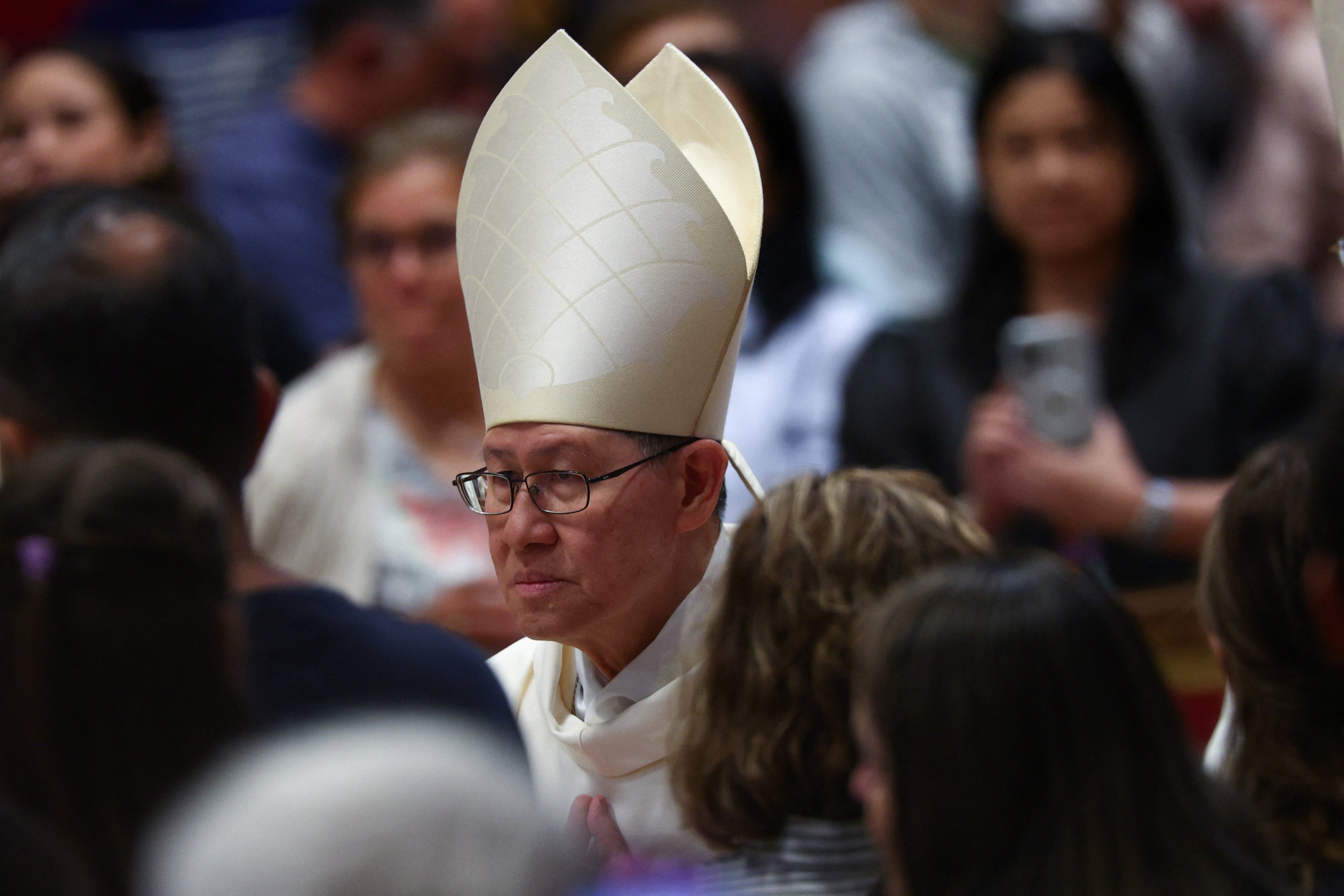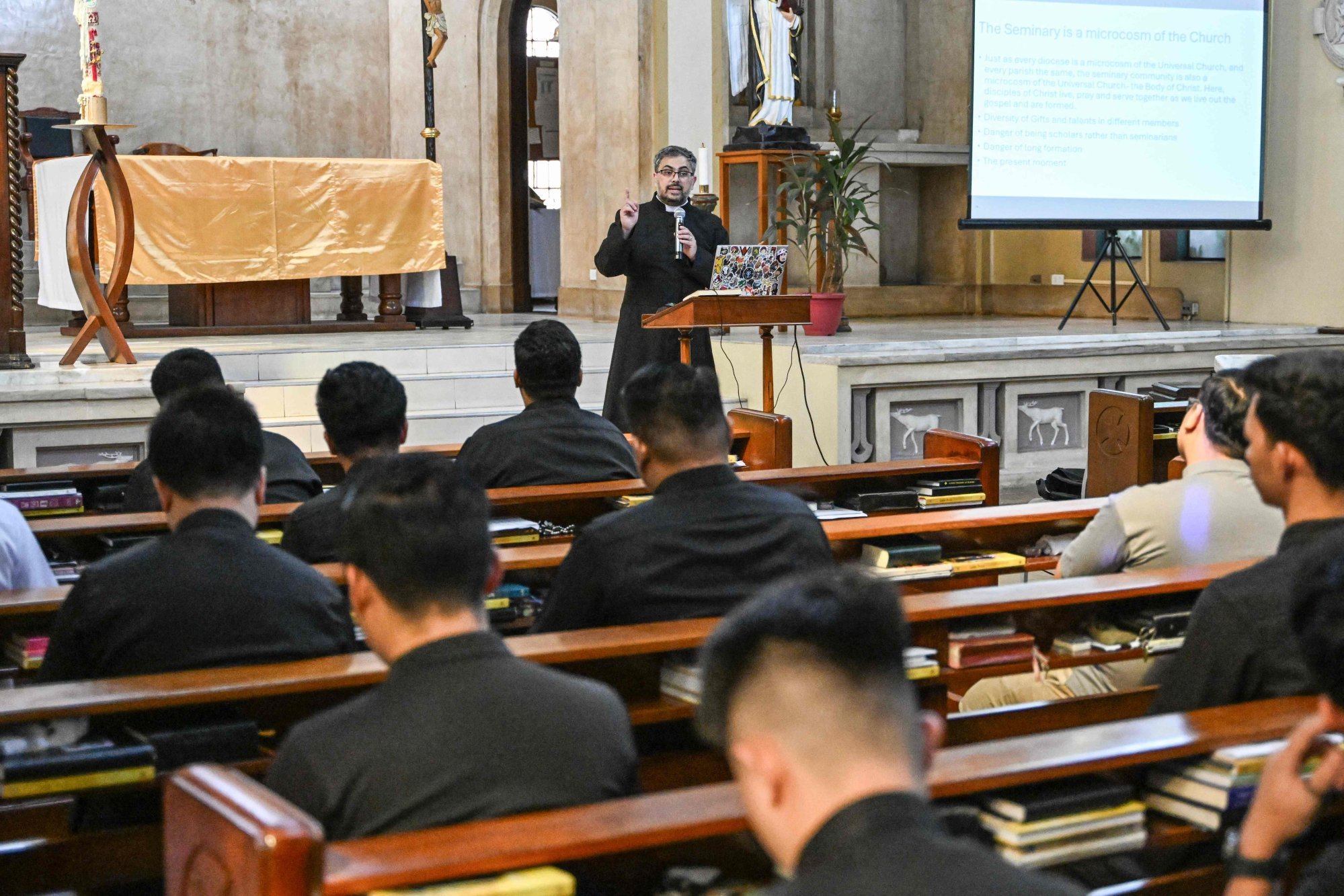Philippines badly needs more Catholic priests. Could a Filipino pope boost clergy ranks?
‘A pope speaking Filipino, plain Filipino, talking to you like he’s talking to you directly … it will be an inspiration,’ a seminarian says

As cardinals gather in the Vatican to elect a new pope – with a Filipino among the favourites – the church in Asia’s most Catholic country is grappling with a decline in those with a vocation for the priesthood.
“According to the statistics we have … one priest is catering to around 9,000 Catholics,” John Alfred Rabena, chancellor of UST Central Seminary, one the country’s oldest, said this week.
It is a situation that was leading to “exhaustion” among an overworked clergy, he said during a visit to the seminary’s art deco building on the sprawling University of Santo Tomas campus.
Philippine Cardinal Luis Antonio Tagle is among the favourites to succeed Pope Francis, while another Filipino, Cardinal Pablo Virgilio David, has emerged as a late dark horse candidate.
While officially cautioned not to campaign for their countrymen, clergymen in the Philippines said they believe a Filipino pope could inspire a surge in recruits to the flagging ranks of the priesthood.
Father Robert Reyes, a well-known activist priest, said he sounded the alarm during his 1987-98 tenure as national vocation director of the Catholic Bishops’ Conference of the Philippines (CBCP).
“I was already warning the bishops that there were obvious signs of a decline in vocations, and how many years is that already?” he said.
While the CBCP said it maintains no formal database tracking enrolment numbers, the Philippine church marked its first-ever national vocation awareness month in November in a bid to “address the critical need for more priests within the nation”.
For Father Jerome Secillano, spokesperson for the CBCP, said the reason for that need is no secret.
“Because of the sexual misconduct that happened in the church,” he said of the global abuse scandal that erupted in the early 2000s.
“That was when people entering the seminary started to dwindle. The impact of that is still being felt.”
And while he believes an outpouring of joy and pride would follow the election of a Filipino pope, he questions if it would be enough.
“I don’t know if a Filipino pope will immediately restore that broken trust,” he said.
Others said the sex abuse scandal could not be solely blamed for dwindling seminary enrolments, pointing to cultural changes that had made the country’s youth harder to reach.
“It’s also because young people are so exposed to the secular world, with travel, with the internet and with social media,” Reyes said.

Seminarian Neil Pena, 27, said he believed the potential for a Filipino pope to galvanise his countrymen’s faith was undeniable.
“It’s different when the pope speaks your language,” Pena said.
“A pope speaking Filipino, plain Filipino, talking to you like he’s talking to you directly … it will be an inspiration.”
Reyes agreed a shared heritage would be meaningful in a “personality-oriented” country.
“If there’s someone famous, we gravitate towards the person and his actions, way of life,” Reyes said. “There might be many who will be interested in [becoming a] priest.”
Rabena, the seminary chancellor, pointed to his own decision to join the clergy, saying it had been “ignited” by the 2015 visit of Francis to the country following the deadliest storm in its history.
Arvin Eballo, a theology professor at the University of Santo Tomas, said there was a time when almost every family aspired to have a son as a priest.
“They believed it was a blessing of God,” he said.